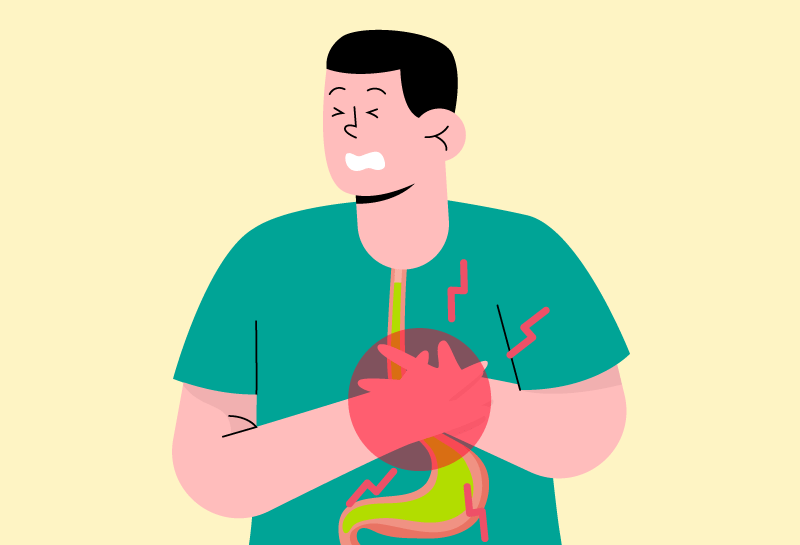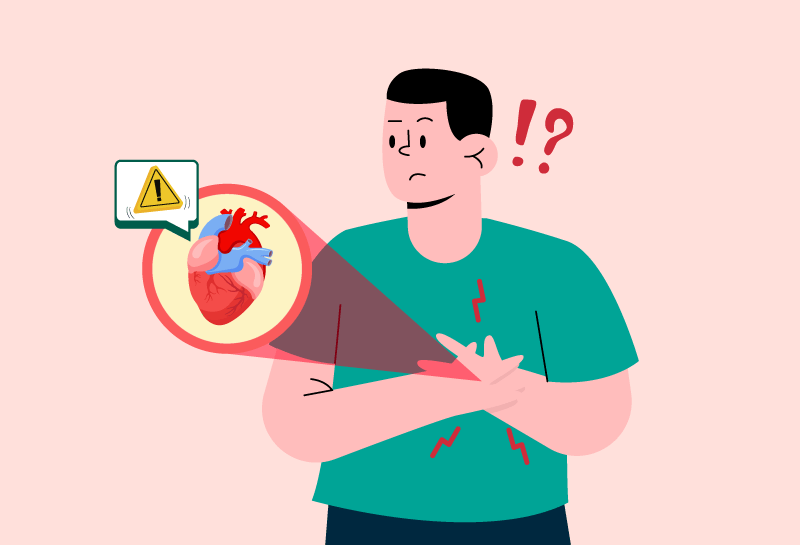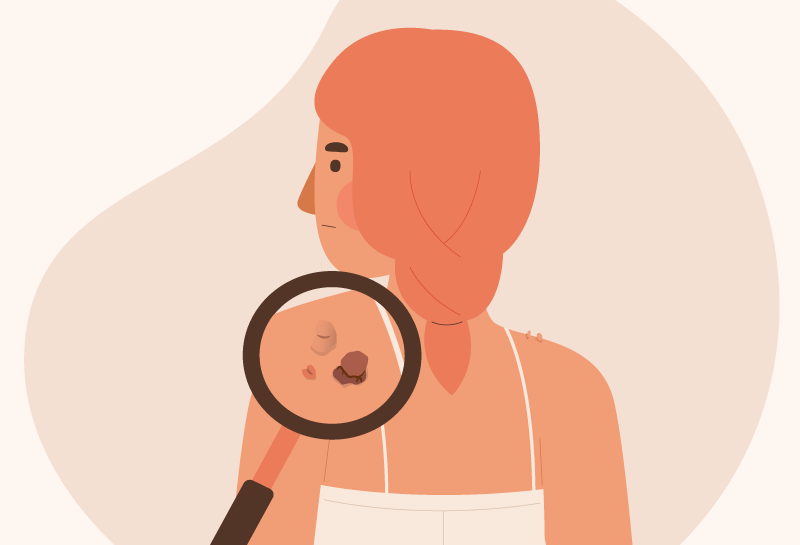What if you could uncover hidden risks in your DNA, long before they impact your health? Imagine being able to prevent or manage conditions like cancer, heart disease, or genetic disorders simply by understanding the secrets your genes hold. With advancements in genetic screening and counselling, this kind of knowledge is no longer just a possibility but a reality. As healthcare shifts toward preventive care, these tools empower you to take control of your health, leading to a longer, healthier life. Genetic screening and counselling offer a personalised approach to understanding your genetic makeup and managing your health long before symptoms appear.
As healthcare practices evolve across the APAC region, innovations like genetic screening and counselling might feel overwhelming at first. It's natural to have concerns about privacy, cultural acceptance, and costs. However, these tools can empower you to take control of your health. This article explores how genetic screening and counselling can address these concerns and guide you in making informed decisions about your wellbeing.
Genetic screening: What it is and why it matters
Genetic screening is the process of testing individuals or populations to detect genetic mutations that may lead to certain health conditions. It can identify whether you are at risk for inherited diseases, often before symptoms appear. Early detection allows you to take proactive steps, such as lifestyle changes or early treatments.

EXPERT INSIGHT
“Humans carry approximately 20,000 genes in every cell of the body. Each gene provides instructions to produce proteins, many of which work together to support complex biological systems. We inherit half of our genes from each parent, and we have a pair of each gene. While most function normally, all individuals carry some genetic changes, or variants, which may or may not lead to health conditions,” says Juliana.
Genetic testing allows us to detect these changes and understand their potential clinical impact. It is generally classified into two categories:
- Genetic screening, which is typically offered to healthy individuals without symptoms to assess risk.
- Diagnostic testing, which is used for individuals exhibiting symptoms or those at risk due to family history.
Various types of genetic screening are available, depending on the genes tested:
Here are some of the most common forms of screening:
- Newborn screening: Conducted shortly after birth to detect rare genetic and metabolic conditions that can cause serious health issues if untreated. Many of these conditions are inherited in an autosomal recessive manner, where both parents are carriers of one affected gene and one normal gene.
- Reproductive carrier screening: Recommended for couples planning to have children. This screening identifies if both partners are carriers of the same autosomal recessive genetic disorder. If so, there's a 25% chance their child will be affected. Options include in vitro fertilisation (IVF) with pre-implantation genetic testing (PGT) to select unaffected embryos, or prenatal diagnostic testing as early as 11 weeks’ gestation during natural conception.
- Prenatal cell-free DNA screening: This screening analyses fragments of the baby’s DNA in the mother’s blood to detect chromosomal abnormalities, such as extra or missing genetic material. If a pregnancy is found to be at high risk, diagnostic testing is recommended for confirmation.
- Hereditary disease screening: Assesses risk for adult-onset conditions such as hereditary cancers, cardiac diseases, neurodegenerative disorders, and metabolic conditions like familial hypercholesterolaemia.
- Multi-cancer early detection (MCED): This emerging form of screening detects early signs of cancer by identifying circulating tumour DNA in the blood. Early detection improves the chances of timely treatment and better outcomes.
- Pharmacogenetic testing: Determines how an individual's genetic makeup affects their response to certain medications, aiding in selecting the most effective treatment options.
Why consider genetic screening?
Genetic screening offers invaluable insights into your health risks, enabling you to take preventive action. As healthcare across the APAC region shifts from treating illness to preventing it, genetic screening plays a key role in this proactive approach. Here’s why you should consider it:

Identify genetic risks early
Early detection of conditions like heart disease, cancer, and neurological disorders allows for interventions that improve long-term health outcomes.

Family planning
It helps prospective parents assess the risk of passing on inherited conditions, leading to informed reproductive choices.

Tailored healthcare
Screening can personalise your healthcare plan, ensuring treatments are more effective by accounting for genetic factors.

Peace of mind
For those with a family history of certain conditions, genetic screening can provide clarity, reducing anxiety and helping you make informed health decisions.

EXPERT TIP
Juliana explains that genetic screening helps identify genetic changes that may lead to health conditions in an individual or their future children. The immediate benefits depend on the specific genes tested. For instance, screening for adult-onset conditions such as cancer, cardiac diseases, neurodegenerative disorders, or metabolic conditions can reveal an individual’s predisposition to developing these diseases later in life.
With this knowledge, individuals can take proactive steps. These may include early medical screening, preventive treatment, or lifestyle adjustments such as improving diet and increasing physical activity. This forward-looking approach not only helps manage potential symptoms but also supports long-term health and may contribute to a longer, healthier lifespan.
Common conditions that can be screened through genetic testing

Hereditary cancer
BRCA1 and BRCA2 mutations are linked to higher risks of breast and ovarian cancers.

Heart disease
Familial hypercholesterolemia (FH) causes high cholesterol and increases the risk of early cardiovascular disease.

Neurological disorders
Conditions like Huntington’s disease can be detected early through predictive screening. Early identification through genetic screening can lead to early interventions (e.g., statins).

Inherited blood disorders
Sickle cell anaemia and thalassaemia can be identified via genetic screening, especially in populations with higher prevalence (e.g., African, Mediterranean, Southeast Asian descent).

Cystic fibrosis and Tay-Sachs
These serious conditions can be detected through genetic tests, helping families make informed decisions.

Fragile X syndrome
Carrier screening for Fragile X syndrome can assess the likelihood of passing on this condition.
Cultural considerations and concerns in APAC
In APAC, where traditional beliefs often influence healthcare decisions, genetic screening may seem invasive or uncomfortable. Concerns about privacy and accessibility are valid but should not deter individuals from exploring these advancements. As healthcare systems across the region evolve, governments are working to make these services more accessible and affordable.

Insurance Premiums
In some countries, individuals who test positive for genetic conditions may face higher premiums for health or life insurance. This concern about genetic discrimination can deter some people from seeking genetic screening, as they fear the potential financial burden associated with higher premiums. While some countries, like the United States and European Union, have laws in place to protect against genetic discrimination in insurance, such protections are not universal across APAC. For example, in countries like India and China, genetic discrimination laws are still evolving, and the regulation of insurance premiums linked to genetic test results is not yet fully developed.

Cultural acceptance
In some APAC cultures, there is a growing recognition of the value of personalised healthcare, and genetic screening is increasingly viewed as a proactive approach to health management. However, in other parts of the region, where traditional practices hold strong, there may still be hesitation to embrace genetic testing due to the fear of social stigma or genetic discrimination.

Privacy
Stringent privacy regulations ensure genetic data is protected. In APAC, countries like Singapore have laws like the Personal Data Protection Act (PDPA), which protect personal data, including genetic information.

Cost
While genetic screening and counselling services have traditionally been costly, the cost of genetic tests has significantly decreased. In countries like Singapore, and in urban areas of India, genetic testing is becoming more accessible through government-backed programs and insurance coverage. While genetic testing remains expensive in some remote regions of India, efforts are ongoing to make it more affordable and accessible to high-risk populations. This shift is gradually making genetic testing more available to individuals in urban centres, though challenges remain in reaching remote areas.
The role of genetic counselling
Genetic counselling plays a crucial role in interpreting the results of genetic screening and offering emotional support. Counsellors help you understand the significance of your genetic test results, whether they are positive or negative, and guide you through your options for prevention and lifestyle changes.
- Interpreting results: Counsellors explain what your genetic test results mean for your health, allowing you to make informed decisions about next steps
- Guidance: After testing, counsellors provide advice on preventive measures, such as lifestyle changes, medications, or further testing.
- Emotional support: Even when results are negative, genetic counselling helps you process complex emotions and understand how your genetic makeup fits with your family history and lifestyle.
- Family planning: Counsellors assist in navigating the implications of genetic results for future children, helping you make informed reproductive choices.

EXPERT INSIGHT
Genetic screening plays an increasingly important role in improving treatment outcomes by identifying genetic changes that may place an individual at higher risk for certain health conditions. This information allows healthcare providers to tailor medical decisions to a person’s unique genetic profile.
Juliana, explains that some medications are designed to work more effectively for people with specific genetic variants. For example, the drug Olaparib has been shown to benefit cancer patients with mutations in the BRCA1 or BRCA2 genes. Knowing whether a patient carries one of these changes enables more precise treatment planning.
In addition, pharmacogenetic screening, a test that analyses how genes influence a person’s response to certain medications, can help determine which drugs are likely to be most effective or better tolerated. This approach not only reduces the risk of side effects but also increases the likelihood of successful treatment.
How genetic screening and counselling work together
Genetic screening and counselling complement each other by
- Before screening: Counsellors help assess whether screening is necessary based on family history and health concerns.
- After screening: Counsellors help interpret results and recommend further steps, guiding preventive care and lifestyle changes.
- On-going support: Even after testing, counsellors remain a valuable resource for continued health decisions.

EXPERT INSIGHT
With rising concerns about data privacy, individuals undergoing genetic testing should take steps to ensure their information is handled responsibly and ethically. Juliana recommends choosing laboratories that are accredited by recognised bodies such as CAP (College of American Pathologists) or CLIA (Clinical Laboratory Improvement Amendments), as these facilities follow strict protocols for data protection.
Before proceeding with any genetic test, it is important to read the consent form carefully. This document outlines how your genetic data will be managed, including whether it will be anonymised, stored, or shared. Even if your data is anonymised, you retain the right to decline storage or sharing after testing.
The same considerations apply when genetic testing is offered as part of a medical research study. Ensuring your participation is fully informed, voluntary, and aligned with your preferences helps safeguard your data and your rights.
How genetic screening and counselling improve health outcomes
Research shows that genetic screening and counselling improve health outcomes by enabling early detection, offering preventive measures, and reducing anxiety. For example:

Breast cancer prevention
Early identification of BRCA mutations allows for preventive surgeries and more frequent screenings.

Cardiovascular health
Familial hypercholesterolemia detection leads to early cholesterol management, reducing heart disease risk.

Healthy family planning
Carrier screening for conditions like cystic fibrosis helps families make informed reproductive decisions.

Psychological benefits
Genetic counselling reduces anxiety, helping individuals cope with health risks and make informed decisions.

EXPERT INSIGHT
To make genetic screening more accessible and affordable, one of the most effective strategies is to integrate it into the public healthcare system with full or partial funding. However, given the high costs and specialised expertise required, it may not be feasible for governments to subsidise all types of genetic screening.
Currently, only a limited number of genetic screening services, such as newborn screening and Thalassaemia screening, are available in public healthcare across the region. In some countries, research projects have been introduced to explore the feasibility of reproductive carrier screening for couples planning to have children, as well as targeted cancer screening initiatives. However, broader gene panels and more advanced technologies are still largely confined to the private sector.
To bridge this gap, public-private healthcare collaborations could be explored as a way to reduce costs and promote the wider use of genetic screening within the community. At the same time, greater public awareness is needed to highlight the role of genetic screening in improving healthcare management, supporting disease prevention, and enhancing life expectancy.
Genetic counselling should also be an essential part of the process, provided both before and after testing. This ensures individuals are fully informed about the benefits and limitations of screening, and understand the implications of their results for their personal and family health.
Empowering your health journey with genetic screening and counselling
Genetic screening and counselling offer a comprehensive approach to understanding and managing your genetic health. These tools help identify risks, provide insights into potential health issues, and offer emotional support to guide decision-making.
With growing accessibility, government-backed programs, and online services in APAC, genetic screening and counselling are increasingly becoming part of everyday healthcare. Find a genetic counsellor near you or talk to your healthcare provider today to start taking control of your health. Don’t wait for symptoms to show up; take action and shape your health today.
This article has been written by Healthful For You and does not represent the opinions, views, or endorsements of the Expert Contributor of this article. The Expert Contributor has solely provided expert insights and tips for informational purposes. Any interpretations, conclusions, or statements beyond these contributions are those of the author and do not reflect the views of the expert contributor. This content is intended for informational purposes only and should not be considered as medical, legal, or professional advice.



 Copied
Copied








 16 mins read
16 mins read 





